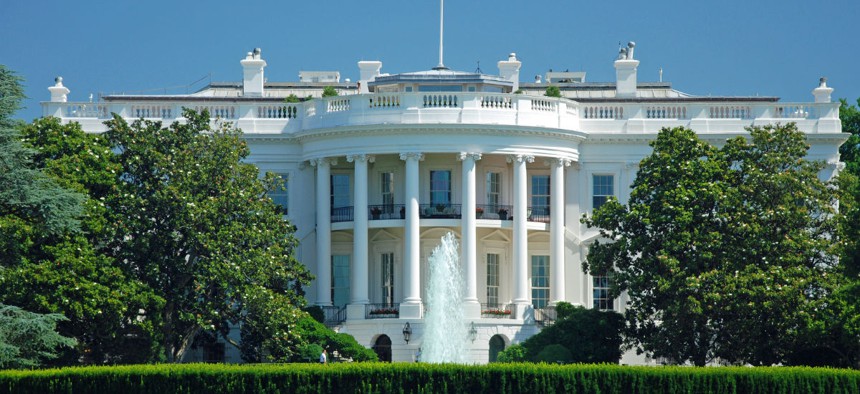It's Time to Reform OMB, Experts Say
The White House Office of Management and Budget needs to pay more attention to management.
The advent of a new administration represents an “historic” opportunity to elevate the “M” side of the Office of Management and Budget. That’s according to a new report from the nonprofit Partnership for Public Service, based on interviews with some 70 OMB alumni and outside stakeholders. The report found that management too often is overshadowed by more urgent issues and the near-constant preparation of budget documents. The report’s authors envision a strengthened OMB as the “primary force for ensuring that federal agencies effectively carry out the president’s decisions by serving as a catalyst for action, injecting a focus on implementation into the policy development process and tracking results to ensure the job gets done.”
What some see as an under-resourced 500-person White House budget office is the “one center-of-government agency that can play a pivotal role in ensuring effective implementation across the entire federal landscape,” it said.
Not all OMB veterans, however, agree with “From Decisions to Results,” compiled with support from the Laura and John Arnold Foundation, and its six themed recommendations aimed at maximizing program impact, knocking down “silos” and discarding unproductive activity.
The proposed remedies, some long familiar, address improvements in policy implementation, interagency coordination, coordination with state and local governments, innovation, use of information and evidence, and better integration of OMB’s management and budget functions to more effectively use staff talent.
At a Thursday panel at the Partnership offices in Washington, former OMB leaders from the Clinton, Bush and Obama administrations offered their own reform recommendations:
Alice Rivlin, who was OMB director under President Clinton, disagreed with the report’s assertion that OMB lacks sufficient resources to cope with expanding demands. “There are too many people involved, especially White House staff, and too many meetings with people coordinating things and saying what their agency is doing,” she said. Calling her proposal “radical,” Rivlin recommended “drastically cutting staff and abolishing” the National Economic Council and the Domestic Policy Council, while keeping the National Security Council.
“Instead of creating yet another czar for implementation,” Rivlin added, “make it the job of the budget director to become the manager of the presidential management agenda and sticking to it.”
Josh Bolten, OMB director and White House chief of staff in the George W. Bush administration, said the incoming president “should seize the moment while there is some receptivity on Capitol Hill to go for biennial budgeting” (a well-examined proposal with which Rivlin agrees). At OMB, “it’s hard to focus on anything other than the urgent firefighting,” Bolten said, “when you’re working on three different budget years at a time.”
Bolten would not abolish the economic and domestic councils, but he would “shrink the National Security Council, which is now up to 400-500 people and has lost effectiveness.” He called for “less micromanaging” by OMB staff, greater familiarity with the policy process among budget analysts and simplified budget review meetings to free the budget director “to be a schmoozer” with other stakeholders.
At the Bush White House, only members of the three councils were permitted to present policy options to the president, but he recommended expanding that privilege to the budget director.
The incoming president should focus on the structure of OMB and reduce the divide between budgeting and managing, Bolten said. That could be accomplished by having management deputies sit in on assistant budget directors’ meetings with Cabinet agency officials, he added.
Dan Tangherlini, an OMB staff veteran who later was administrator of the General Services Administration, questioned whether “we have the OMB we need now” to address the challenges actually facing government. He likened the current structure to an “HO scale model train set for a government that doesn’t exist anymore.”
OMB is “at its best when it’s helping the administration measure performance toward goals,” said Tangherlini, noting that OMB has a track record of supporting agencies in crisis.
Max Stier, the partnership’s president and CEO, said OMB too often gets typecast in the role as “a source of no.”
Rivlin took issue with that characterization, however, saying the president “needs a source of no because there are never enough resources to go around.”








